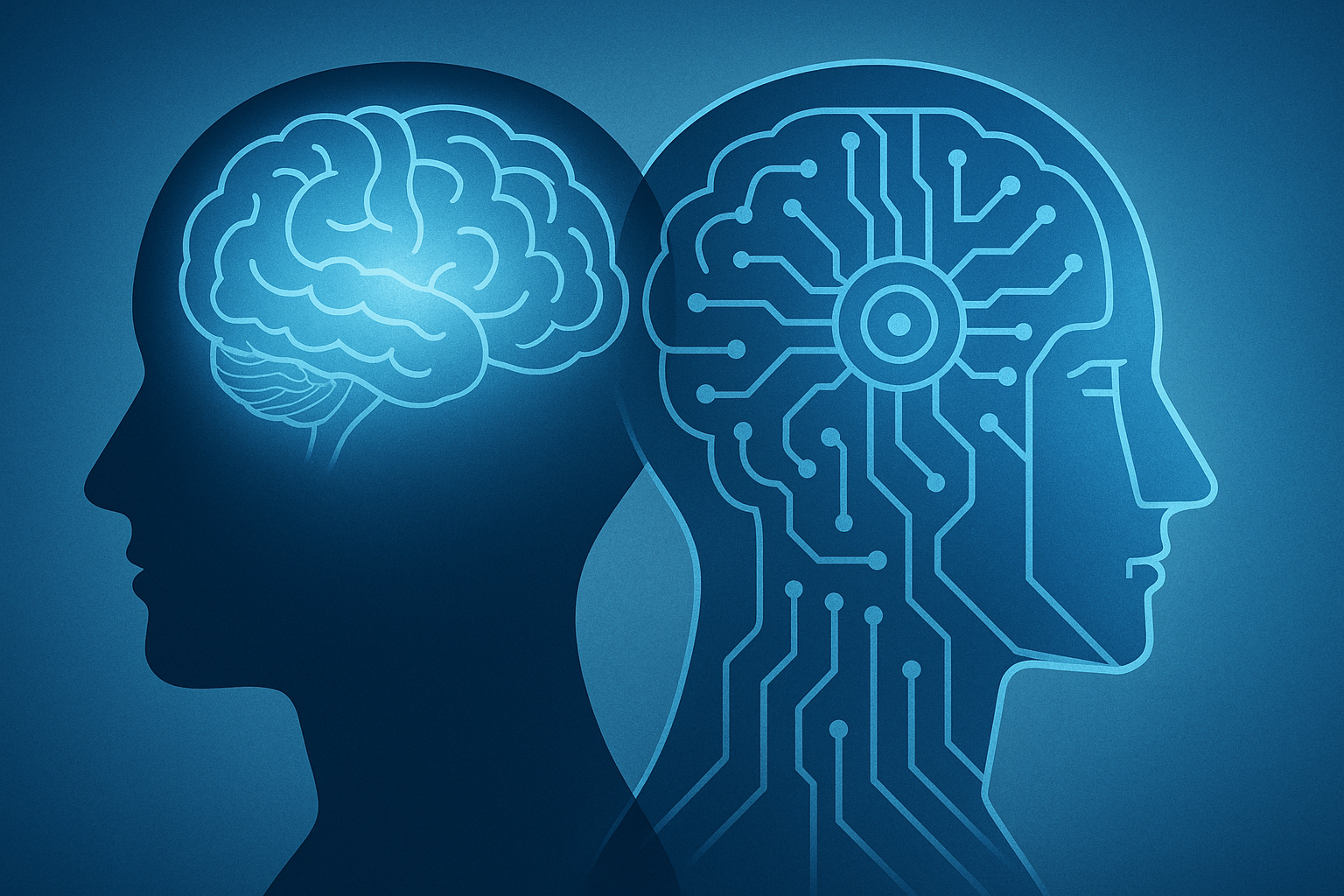Artificial intelligence has so rapidly woven itself into business culture that 97% of executives believe generative AI will transform their company and industry. From autocomplete in emails to large language models drafting entire reports, AI systems increasingly serve as cognitive partners.
But as reliance deepens, a quieter tension is emerging: the gradual outsourcing of memory, reasoning and even creativity to machines. This shift, known as cognitive offloading, raises urgent questions about what humans gain — and what they risk losing — when AI takes on tasks once handled by our own minds.
Hidden costs of convenience
Cognitive offloading isn’t new. People have long relied on external tools, from written language to calculators, to extend their thinking. The difference now lies in scale and subtlety. AI doesn’t just store information; it interprets, predicts and suggests. It’s blurring the lines between human judgment and machine suggestion.
Research has shown how digital reliance reshapes memory. A 2011 Harvard study by psychologist Betsy Sparrow demonstrated that people are less likely to remember facts if they believe the information is stored online. GPS navigation has made map-reading a lost art. AI tools amplify that effect; instead of recalling a detail, users reach for ChatGPT or Google Gemini to retrieve it instantly. Over time, this can weaken not only recall but also the deeper connections that form when grappling with information firsthand.
The workplace vividly illustrates this tradeoff. Marketing teams draft campaigns with generative tools, financial analysts lean on AI to surface patterns and developers use code assistants to suggest fixes. Each of these tasks benefits from AI’s speed and efficiency. But the cost can be subtle deskilling. When algorithms shoulder the “first draft” of thinking, professionals risk losing sharpness in problem-solving, critical evaluation and originality. The convenience that accelerates output may erode the very expertise that organizations value.
The issue is not simply about memory but about agency. As algorithms suggest the “next best word” or “likely strategy,” users learn to default to machine-supplied options. Once people routinely accept machine-generated outputs, questioning them becomes less instinctive. That shift risks creating environments where lax AI oversight disrupts accountability.
Offloading dilemma
Organizations must achieve a delicate balance. Rejecting AI tools wholesale forfeits efficiency, but over-reliance threatens long-term capability. What’s needed is a model where AI augments cognition without replacing it.
One solution is deliberate “cognitive training.” Just as athletes use resistance training to strengthen muscles, knowledge workers may need structured practice in reasoning and problem-solving without AI assistance. Some companies are already experimenting with “AI-free days” or exercises that require teams to brainstorm solutions without algorithmic input. These practices preserve essential skills while still allowing employees to harness AI’s benefits in other contexts.
Another approach emphasizes critical engagement. Rather than treating AI as an oracle, workers regard it as a sparring partner, one that demands verification, debate and refinement. This mindset reframes cognitive offloading as a dialogue rather than a handover. For example, a news reporter might use AI to surface background facts but insist on manually cross-checking sources and crafting a narrative voice. The process preserves expertise while avoiding total AI dependence.
Education systems are also grappling with this tension. Some schools initially banned generative AI, fearing plagiarism and intellectual laziness. A more sustainable path may involve teaching students how to use AI critically by encouraging them to dissect its suggestions, identify biases and decide when to override machine outputs. In this framing, AI becomes less a crutch and more a tool for cultivating discernment.
Corporate leaders have a role in setting cultural expectations. When managers prize efficiency above all else, employees naturally gravitate toward shortcuts that offload cognition. By contrast, when organizations reward originality, critical analysis and depth of thought, workers are incentivized to engage more actively, using AI as an enhancer rather than a substitute. Governance models, including guidelines on when AI should and should not be used, can help codify this balance.
The regulatory landscape may eventually force the issue. Policymakers in Europe and the U.S. have begun debating transparency and bias in AI systems as well as their broader social effects. While regulation around cognitive offloading remains speculative, mounting research on digital dependency could eventually shape frameworks that promote human oversight and skill retention.
Shared intelligence
The dilemma of cognitive offloading crystallizes a deeper question: What role should humans play in an AI-saturated world? If machines increasingly handle recall, synthesis and suggestion, human strengths need to shift toward judgment, creativity and ethical discernment.
One vision sees this as an opportunity rather than a threat. Just as industrial automation freed workers from repetitive physical labor, cognitive automation could liberate people from rote intellectual tasks.
That, in turn, might allow for a greater focus on big-picture strategy, interpersonal nuance and long-term vision. But for this shift to succeed, humans must remain intentional stewards of their own cognitive capacities. Outsourcing memory may be harmless; outsourcing critical thought is not.
Ultimately, the issue is not whether AI will change how we think. It already has. The bigger question is whether societies will adapt with safeguards to preserve human agency. If people cultivate habits of questioning, reflection and intentional skill-building, AI can serve as a collaborator rather than a cognitive substitute.
The challenge is clear: Resist the seductive pull of convenience while embracing the undeniable value AI provides. In that tension lies the future of human intelligence itself. The task ahead is to wield AI in ways that expand, rather than diminish, the depth of human thought.
Isla Sibanda is an ethical hacker and cybersecurity specialist based in Pretoria, South Africa. For more than 12 years, she has worked as a cybersecurity analyst and penetration testing specialist for several companies, including Standard Bank Group, CipherWave and Axxess. She wrote this article for News.
Image: News/DALL-E
Support our mission to keep content open and free by engaging with theCUBE community. Join theCUBE’s Alumni Trust Network, where technology leaders connect, share intelligence and create opportunities.
- 15M+ viewers of theCUBE videos, powering conversations across AI, cloud, cybersecurity and more
- 11.4k+ theCUBE alumni — Connect with more than 11,400 tech and business leaders shaping the future through a unique trusted-based network.
About News Media
Founded by tech visionaries John Furrier and Dave Vellante, News Media has built a dynamic ecosystem of industry-leading digital media brands that reach 15+ million elite tech professionals. Our new proprietary theCUBE AI Video Cloud is breaking ground in audience interaction, leveraging theCUBEai.com neural network to help technology companies make data-driven decisions and stay at the forefront of industry conversations.









